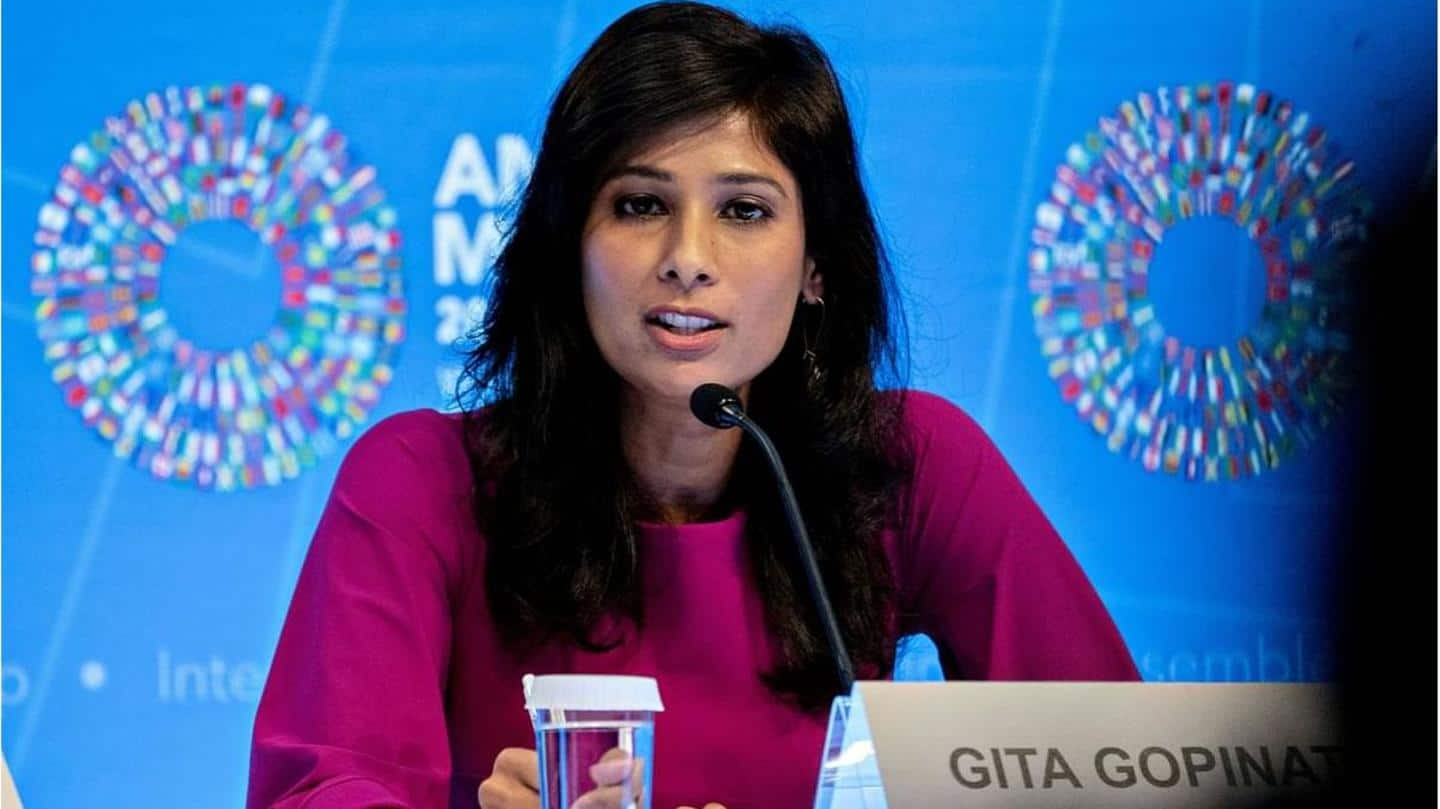
Improve health system to tackle COVID-19 crisis in future: Gopinath
What's the story
As the world gradually makes its way out of the coronavirus crisis, International Monetary Fund (IMF) Chief Economist Gita Gopinath has said that countries should work on their health system and be ready to provide timely assistance to impacted segments of the society. She also called for enhanced global cooperation to be better prepared for addressing such a challenge next time.
Information
Economy is projected to grow at 5.5 percent in 2021
The IMF said this week that the global economy, ravaged by the COVID-19 pandemic, is projected to grow at 5.5 percent in 2021 and 4.2 percent in 2022.
First key lesson
Many developing countries need additional investment in health infrastructure
Gopinath said, "There are three key lessons to be learned from the COVID-19 crisis that has impacted global economic activity." "Firstly, countries should prepare their health systems to be ready for any kind of a health crisis. There are many developing countries that need additional investment in their health infrastructure. That is a very important lesson to be learned," she said.
Second lesson
Provide timely assistance to struggling households, businesses: Gopinath
Gopinath said that the second lesson to remember is to provide timely assistance to struggling households, businesses. Emphasizing greater international cooperation, she said, "It is needed, for instance, in making sure that vaccinations and therapies and anything else that can end the health crisis is available globally. Otherwise, we are not going to be out of this with all these new virus mutations."
Policy support
Policy support deployment has mostly happened in advanced countries
Gopinath said, "We have to have a mechanism in place to ensure that countries are actually going to work together to make sure that there is the widespread availability of solutions to the health crisis." Pointing that many countries have deployed policy support, she said, "If you look at the magnitudes of it, most of it has happened in advanced economies."
Fiscal support
Higher fiscal support from advanced economies than the rest
Gopinath said, "Just in terms of numbers, advanced economies have provided a fiscal support of around 24 percent of their GDP in 2020 and that number for emerging markets and middle-income countries is around six percent." She said that for low-income countries it goes all the way down to two percent.
Economic recoveries
One of the strongest economic recoveries happened in China
Gopinath said, "If you look at the overall recovery, we're seeing very diverging recoveries around the world." "Among the emerging developing economies, one of the strongest recoveries comes in China, which is already back to the pre-pandemic projected level for the fourth quarter of 2020, and among advanced economies, the US is having a faster recovery than, for instance, the Euro area," she added.
Quote
Many countries are not recovering as fast: Gopinath
"But there are many countries that are not recovering as fast in terms of closing the output gap that they have relative to where they would have been in the absence of this pandemic," Gopinath underlined.
Assistance
IMF has provided financial assistance to 82 countries
Gopinath said that the IMF has provided financial assistance to about 82 countries, the vast majority of which have received emergency financing and it was a record in terms of what the IMF has done in the past. "It has also provided debt relief and concessional financing," she added.